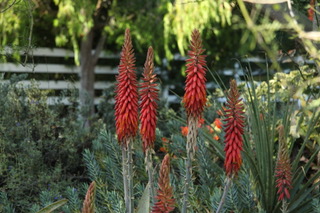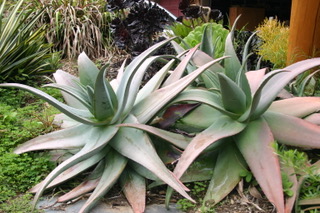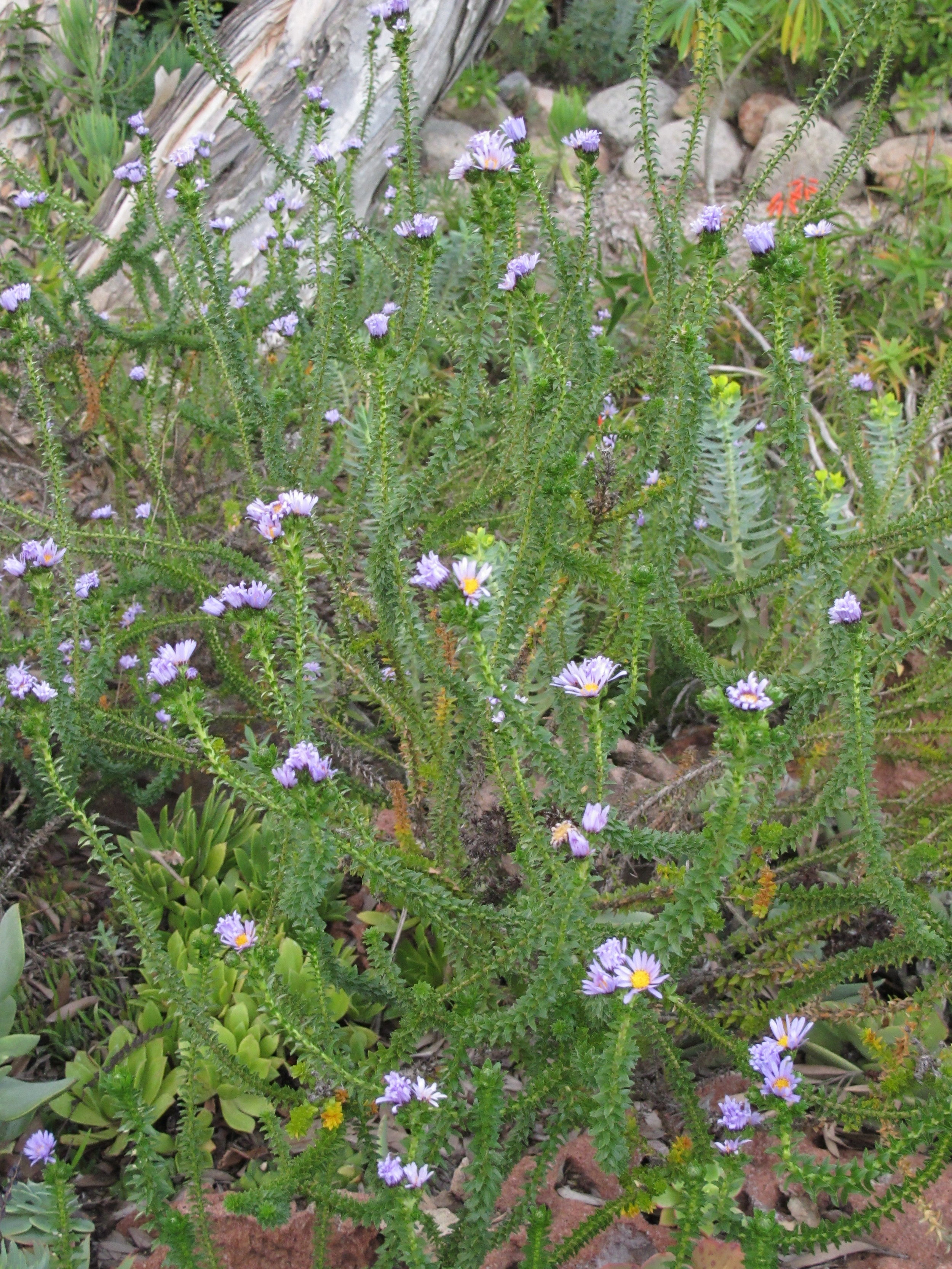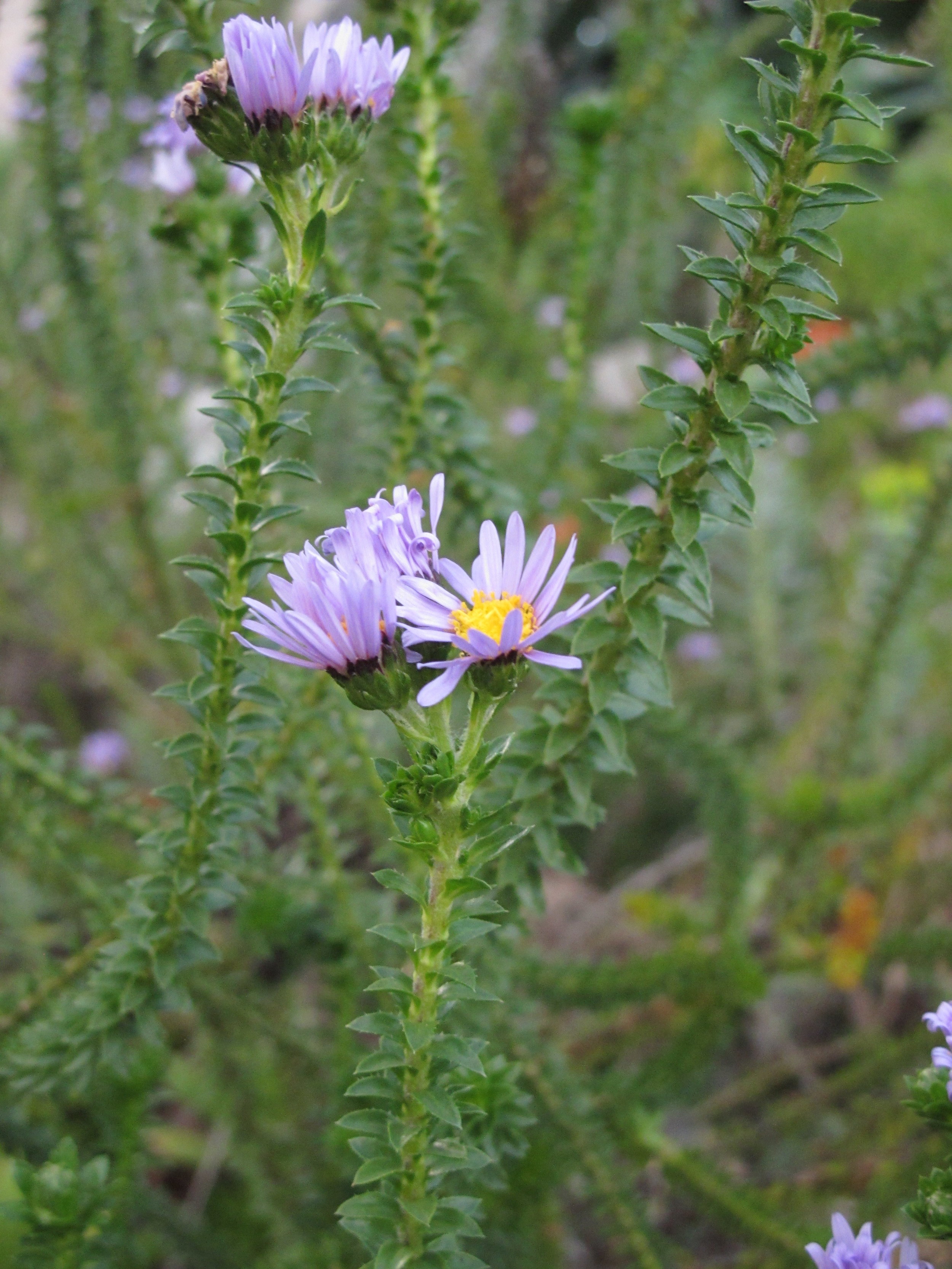Photo courtesy of Ramie Allard. Photography by Mimi Giboin.
DESIGNER PLANT PICKS:
Winter Wonders: Designer Favorite Cold Season Plants
Winter is traditionally a “quiet time” in the landscape for most parts of the world, but here in California many of our most stunning native and non-native plants are at their very best this time of year.
Below, a few landscape designers share their favorite plants that dazzle in the winter.
Kristin Caldwell
Kristin Caldwell Garden Design, Moraga, CA
APLD Bay Area District Member
I love the gnarly, twisty green branching silhouette in winter of Ponicirus trifoliata. It is a super hardy citrus and gives an "all season" presence with winter silhouette, spring bloom, summer/fall fruit and fall color. Best if placed against a wall where branch structure can be displayed.
Patricia St. John, FAPLD
St. John Landscapes, Berkeley, CA
APLD Bay Area District Member
Two of my favorite plants that carry a garden throughout the winter are Beschonaria yuccoides ‘Flamingo Glow’ and Correa ‘Wyn’s Wonder’. The Beschonaria looks smart, neat and tidy all year giving a low maintenance focal point to the winter garden. The variegated Correa ‘Wyn’s Wonder’ spreads steadily through the garden, with the added bonus of blooming in the winter providing, through its tubular flowers, nectar for our winter-hungry hummingbirds.
Jennifer Kate Brand
Jennifer Kate Landscapes, Livermore, CA
APLD Bay Area District Member
St. Catherine’s lace buckwheat (Eriogonum giganteum) is amazing this time of year. The blooms turn rich chocolate and look incredible with the pale blue foliage beneath. Pairing this plant with cape rush, sage, and ‘blue glow’ agaves accentuates the combination even more.
Kate Stickley
Arterra LLP Landscape Architects, San Francisco, CA
APLD Bay Area District Member
Symphoricarpos albus: White flowers are followed by clusters of berries that start off marshmallowsbut ripen to pure white by early autumn. They look amazing on the naked dark winter stems, and are reminiscent of small marshmellows ready to be roasted. The berries persist through the winter largely because most birds don't like to eat them, which is fine by me! Their strange form and odd colored fruit are a solid backbone of any winter display.
Nan Sterman Waterwise Gardener, Encinitas, CA
APLD San Diego District Member
Aloe rubroviolaceae is one of my all time favorite aloes and it is blooming beautifully in my garden now. This is a low growing rosette-shaped aloe, each 2 to 2.5 feet across and eventually forming a colony. The blades are blue-green with a rose-purple blush and the blooms are intense coral and pink. The rosettes orient themselves so they face the sun. Just stunning.
Felicia echinata from South Africa is a great little subshrub that has tiny grass-green, scale like leaves that clothe upright, two-foot tall stems, each topped in a quarter sized lavender flower with a distinct yellow center. The yellow/green/lavender color contrast is a knockout. I started with just a couple of these plants and they slowly spread, their cottony seeds float across the garden and sprout where they want to grow. And I’m just fine with that.
TOOLS AND TIPS:
Designing Your Business
by Ryan Prange
Falling Waters Landscape Design
Solana Beach, CA
APLD San Diego District Member
Ryan Prange, APLD member and founder and principal of Falling Waters Landscape Design, has been practicing in the Los Angeles area for over a decade. He has now decided it is time to share his knowledge with others. He recently launched a subscription mailing list called “Think Outside” filled with insights and business tips. His goal is to provide education and inspiration to help others get started in landscape design, or to boost their business.
Included in this article is an excerpt from the “Playbook” which is a guide that shares insights, tricks of the trade, business advice, systems and processes, case-studies, and everything he’s learned over the years.
Photo courtesy of Ryan Prange.
TAKING THE LEAD ON FIRE PREVENTION
by Suzanne Baird, ASLA
Perennial Designs, Westlake Village
APLD Greater Los Angeles Advocacy Chair
Having just finished a fuel modification plan for a client who lost their home during the Thomas fire, it was unsettling to find myself a few days later packing our valuables and evacuating from our home of more than 25 years. The fires came close, charring the hillsides and open space surrounding us, but our neighborhood was spared. We were lucky.
As Governor Jerry Brown recently stated, the devastating fires we experienced are no longer the exception but the new norm for California. The combination of drought, urban sprawl into native wilderness, and the unpredictability of fire itself has created a volatile situation. As we saw first-hand with the Woolsey fires, our communities are vulnerable and we need to be better prepared to protect ourselves and limit the spread of the wildfires.
Photo courtesy of Suzanne Baird, ASLA.











